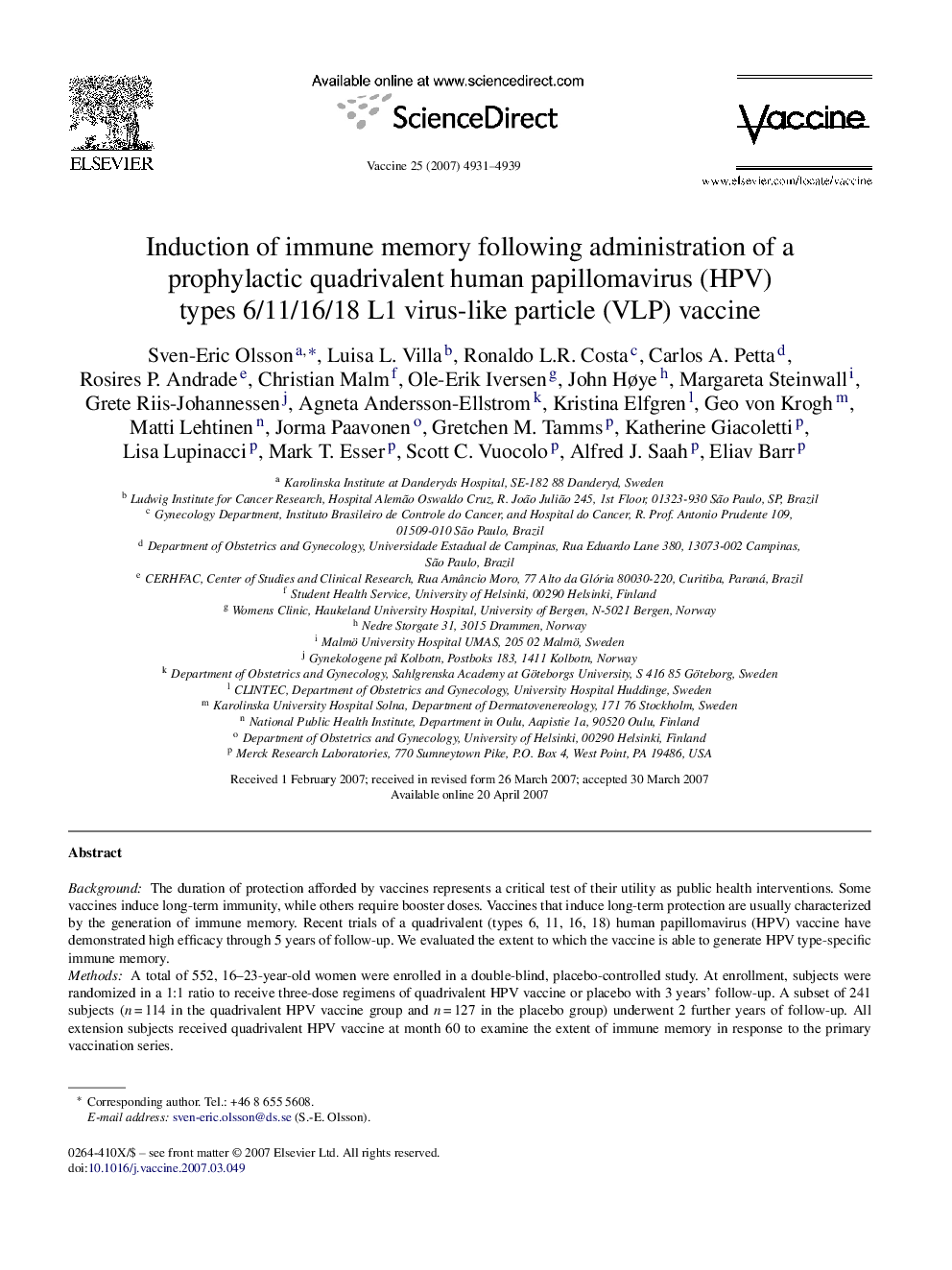| Article ID | Journal | Published Year | Pages | File Type |
|---|---|---|---|---|
| 2408274 | Vaccine | 2007 | 9 Pages |
BackgroundThe duration of protection afforded by vaccines represents a critical test of their utility as public health interventions. Some vaccines induce long-term immunity, while others require booster doses. Vaccines that induce long-term protection are usually characterized by the generation of immune memory. Recent trials of a quadrivalent (types 6, 11, 16, 18) human papillomavirus (HPV) vaccine have demonstrated high efficacy through 5 years of follow-up. We evaluated the extent to which the vaccine is able to generate HPV type-specific immune memory.MethodsA total of 552, 16–23-year-old women were enrolled in a double-blind, placebo-controlled study. At enrollment, subjects were randomized in a 1:1 ratio to receive three-dose regimens of quadrivalent HPV vaccine or placebo with 3 years’ follow-up. A subset of 241 subjects (n = 114 in the quadrivalent HPV vaccine group and n = 127 in the placebo group) underwent 2 further years of follow-up. All extension subjects received quadrivalent HPV vaccine at month 60 to examine the extent of immune memory in response to the primary vaccination series.ResultsSerum anti-HPV levels declined post-vaccination, but reached a plateau at month 24 that remained stable through month 60. Administration of a challenge dose of vaccine induced a classic anamnestic response, with anti-HPV levels 1 week post-challenge reaching levels observed 1 month following the completion of the three-dose primary series. At 1 month post-challenge, anti-HPV responses were higher than those observed 1-month post-dose 3.DiscussionA three-dose regimen of quadrivalent HPV vaccine induces high efficacy and stable anti-HPV levels for at least 5 years. Vaccination also induces robust immune memory. These findings suggest that the efficacy of this vaccine will be long lasting.
